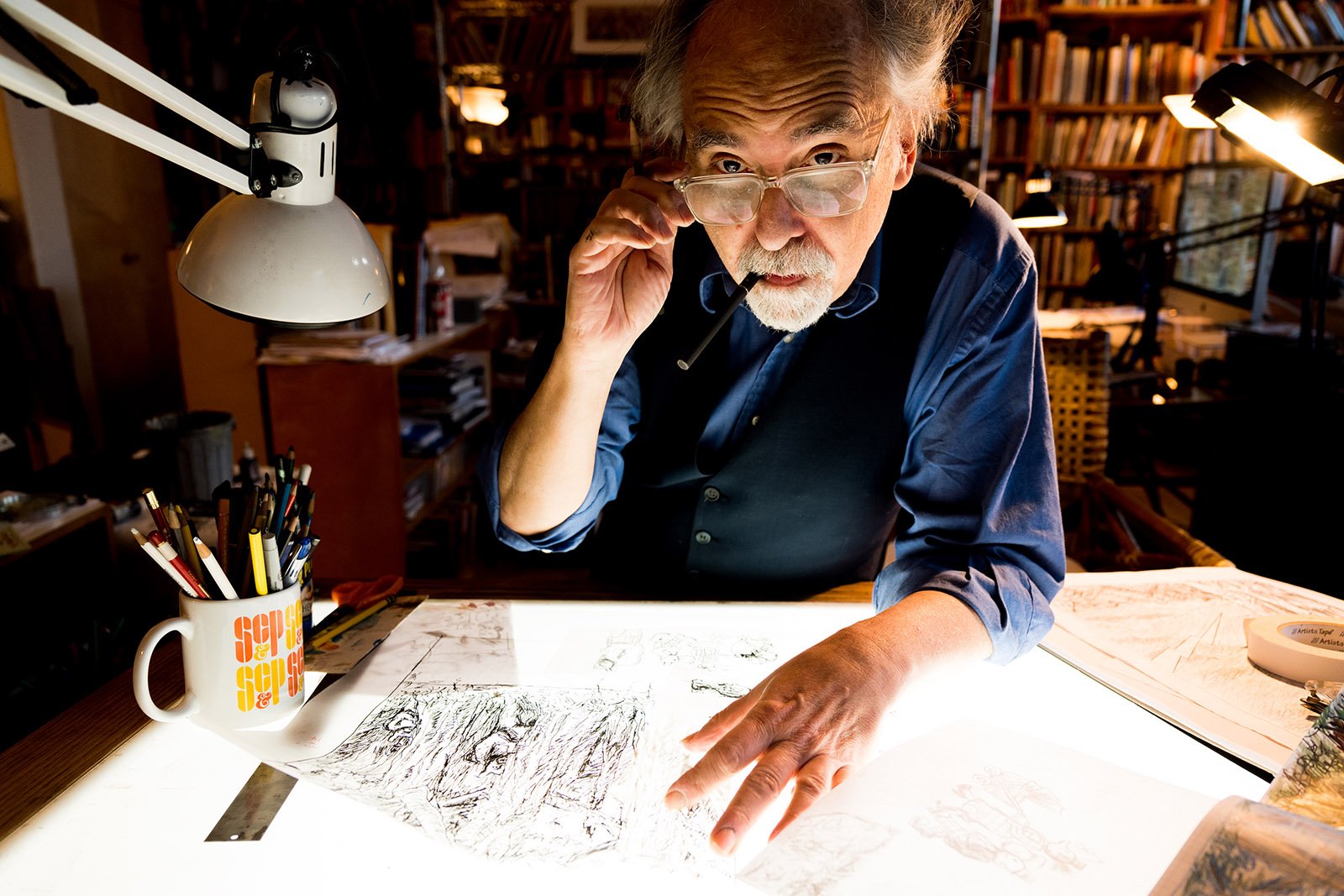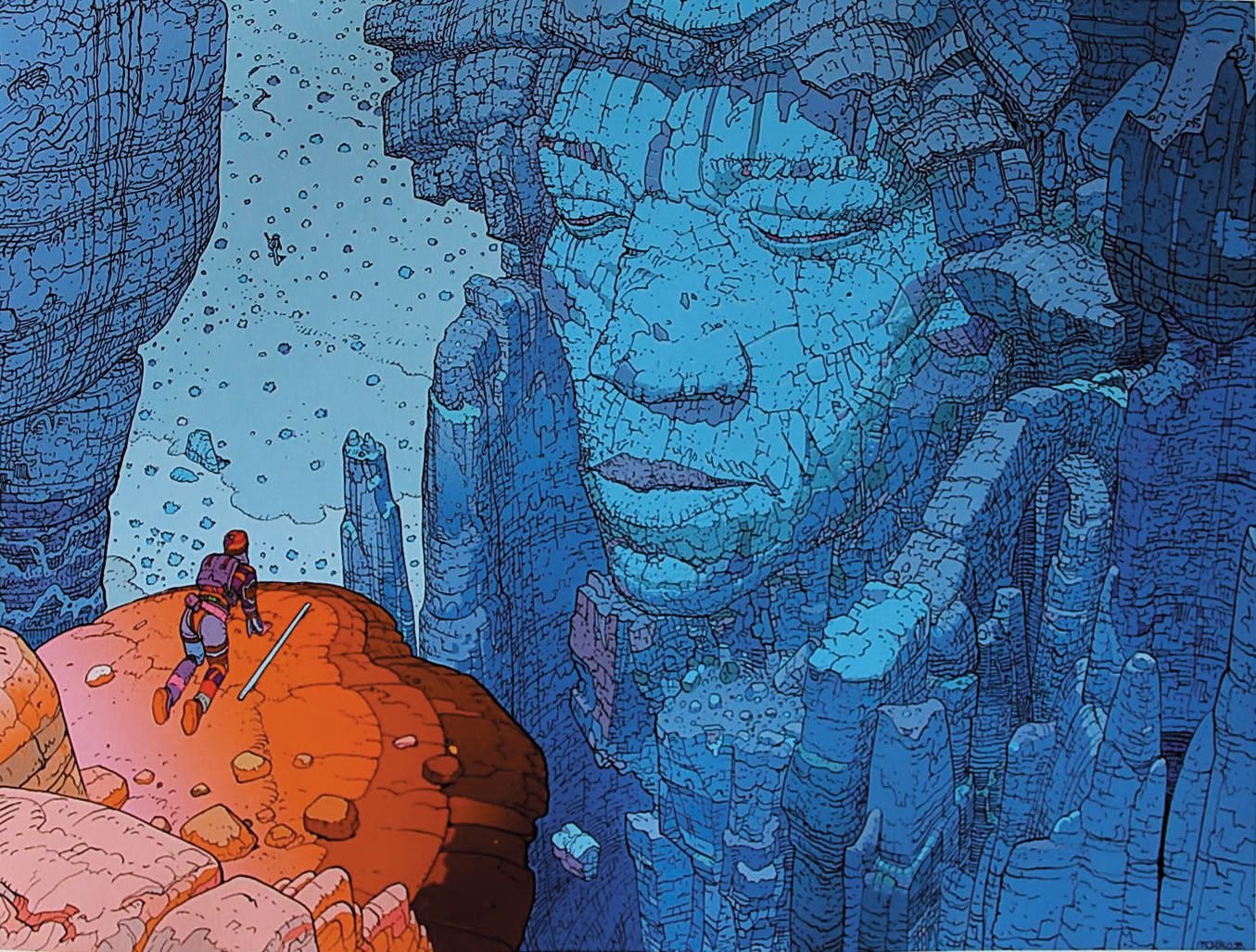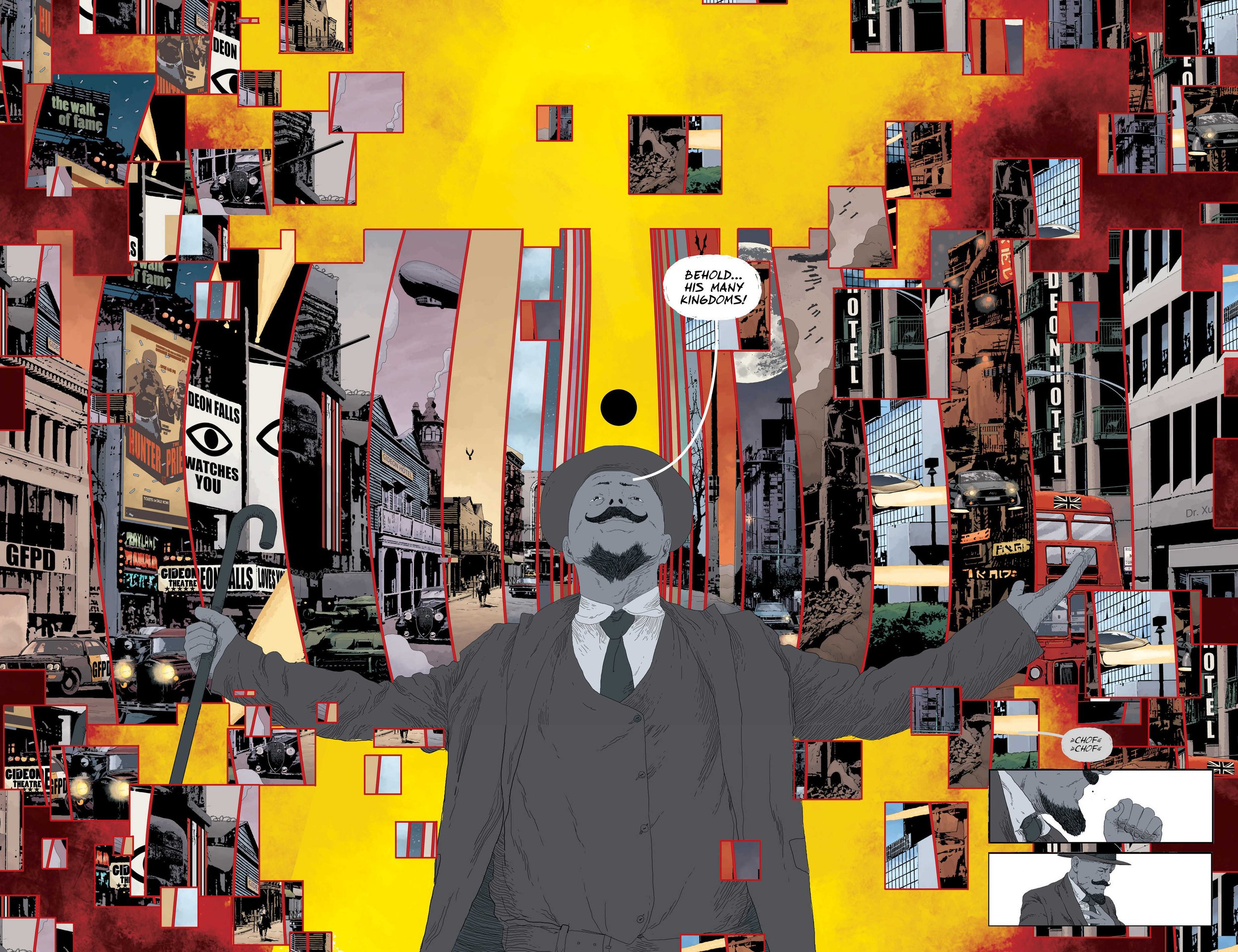Art Spiegelman: Comics as Medium of Expression

American cartoonist Art Spiegelman [1948], born in Stockholm, grew up in New York and later moved to San Francisco to take part in the 60‘s emerging countercultural underground comix movement.
He soon started publishing his art in magazines like Young Lust, Bizarre Sex and Bijou Funnies. One of his most outstanding strips was his 1971 Prisoner on the Hell Planet which dealt with the suicide of his mother, a Holocaust survivor.
In 1974 he met his later Wife Francois Mouly with whom he published a collection of his art titled BREAKDOWNS and in 1980 stated RAW, a comics anthology published from 1980 until 1991, which has been the flagship publication of the alternative comics movement and not only did feature works by artists such as Robert Crumb but also introduced readers to future comic icons like Charles Burns. In RAW he first published MAUS, a graphic novel telling the story of his father Vladek Spiegelman, like his mother a Holocaust survivor.
Based on interviews until Vladek’s death, MAUS depicts his parent’s experiences from the years leading up to World War II to their liberation from Auschwitz and heavily deals with the troubled relationship between Art and his father and the grief over the absence of his mother.
He used anthropomorphic animals with Jews being depicted as mice and Germans being depicted as cats to tell the story.
Spiegelman released the first six chapters as MAUS: A Survivor’s Tale - My Father Bleeds History in 1986 and started teaching at the School of Visual Arts in New York in 1987.
He is also famous for creating the heavily successful trading card series Garbage Pail Kids before publishing the second Volume of MAUS titled And Here My Troubles Began for which he received a Pulitzer Prize in 1992.
After ten years of working at the New Yorker Spiegelman started publishing what would later become In the Shadow of No Towers, his reaction to the September 11 attacks on the World Trade Center one year before. He described working on it as a way to deal with his post-traumatic stress disorder.
Until today Spiegelman’s body of work is outstanding in the medium of comics.






